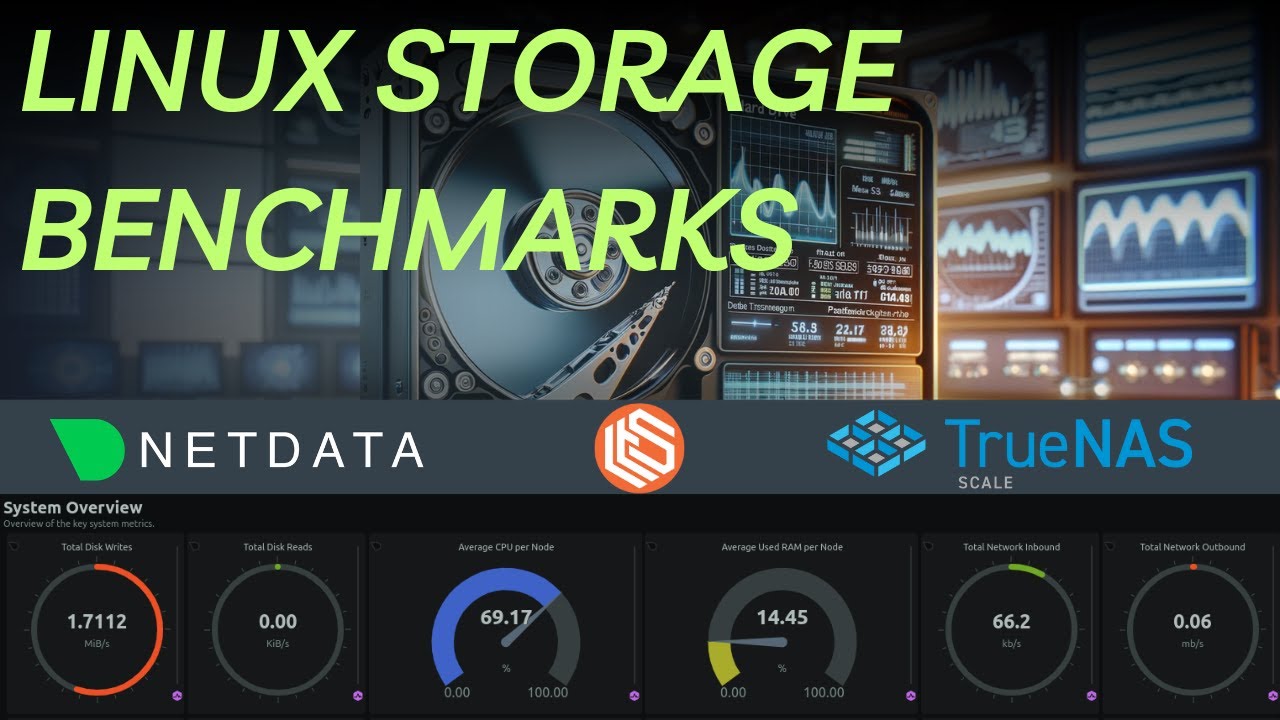Simple bash script I use for storage testing in Linux. The tool has two dependencies which are FIO and bc. On Debian or Ubuntu based systems:
sudo apt-get install fio bc
The script:
#!/bin/bash
# this script requires fio bc & jc
# Directory to test
TEST_DIR=$1
# Parameters for the tests should be representive of the workload you want to simulate
BS="1M" # Block size
IOENGINE="libaio" # IO engine
IODEPTH="16" # IO depth sets how many I/O requests a single job can handle at once
DIRECT="1" # Direct IO at 0 is buffered with RAM which may skew results and I/O 1 is unbuffered
NUMJOBS="5" # Number of jobs is how many independent I/O streams are being sent to the storage
FSYNC="0" # Fsync 0 leaves flushing up to Linux 1 force write commits to disk
NUMFILES="5" # Number of files is number of independent I/O threads or processes that FIO will spawn
FILESIZE="1G" # File size for the tests, you can use: K M G
# Check if directory is provided
if [ -z "$TEST_DIR" ]; then
echo "Usage: $0 [directory]"
exit 1
fi
# Function to perform FIO test and display average output
perform_test() {
RW_TYPE=$1
echo "Running $RW_TYPE test with block size $BS, ioengine $IOENGINE, iodepth $IODEPTH, direct $DIRECT, numjobs $NUMJOBS, fsync $FSYNC, using $NUMFILES files of size $FILESIZE on $TEST_DIR"
# Initialize variables to store cumulative values
TOTAL_READ_IOPS=0
TOTAL_WRITE_IOPS=0
TOTAL_READ_BW=0
TOTAL_WRITE_BW=0
for ((i=1; i<=NUMFILES; i++)); do
TEST_FILE="$TEST_DIR/fio_test_file_$i"
# Running FIO for each file and parsing output
OUTPUT=$(fio --name=test_$i \
--filename=$TEST_FILE \
--rw=$RW_TYPE \
--bs=$BS \
--ioengine=$IOENGINE \
--iodepth=$IODEPTH \
--direct=$DIRECT \
--numjobs=$NUMJOBS \
--fsync=$FSYNC \
--size=$FILESIZE \
--group_reporting \
--output-format=json)
# Accumulate values
TOTAL_READ_IOPS=$(echo $OUTPUT | jq '.jobs[0].read.iops + '"$TOTAL_READ_IOPS")
TOTAL_WRITE_IOPS=$(echo $OUTPUT | jq '.jobs[0].write.iops + '"$TOTAL_WRITE_IOPS")
TOTAL_READ_BW=$(echo $OUTPUT | jq '(.jobs[0].read.bw / 1024) + '"$TOTAL_READ_BW")
TOTAL_WRITE_BW=$(echo $OUTPUT | jq '(.jobs[0].write.bw / 1024) + '"$TOTAL_WRITE_BW")
done
# Calculate averages
AVG_READ_IOPS=$(echo "$TOTAL_READ_IOPS / $NUMFILES" | bc -l)
AVG_WRITE_IOPS=$(echo "$TOTAL_WRITE_IOPS / $NUMFILES" | bc -l)
AVG_READ_BW=$(echo "$TOTAL_READ_BW / $NUMFILES" | bc -l)
AVG_WRITE_BW=$(echo "$TOTAL_WRITE_BW / $NUMFILES" | bc -l)
# Format and print averages, omitting 0 results
[ "$(echo "$AVG_READ_IOPS > 0" | bc)" -eq 1 ] && printf "Average Read IOPS: %'.2f\n" $AVG_READ_IOPS
[ "$(echo "$AVG_WRITE_IOPS > 0" | bc)" -eq 1 ] && printf "Average Write IOPS: %'.2f\n" $AVG_WRITE_IOPS
[ "$(echo "$AVG_READ_BW > 0" | bc)" -eq 1 ] && printf "Average Read Bandwidth (MB/s): %'.2f\n" $AVG_READ_BW
[ "$(echo "$AVG_WRITE_BW > 0" | bc)" -eq 1 ] && printf "Average Write Bandwidth (MB/s): %'.2f\n" $AVG_WRITE_BW
}
# Run tests
perform_test randwrite
perform_test randread
perform_test write
perform_test read
perform_test readwrite
# Clean up
for ((i=1; i<=NUMFILES; i++)); do
rm "$TEST_DIR/fio_test_file_$i"
done
Video covering how to use the tool
